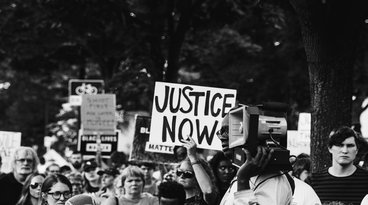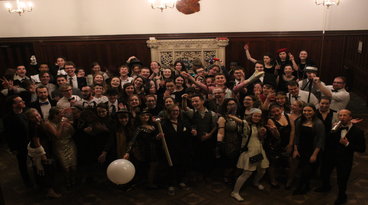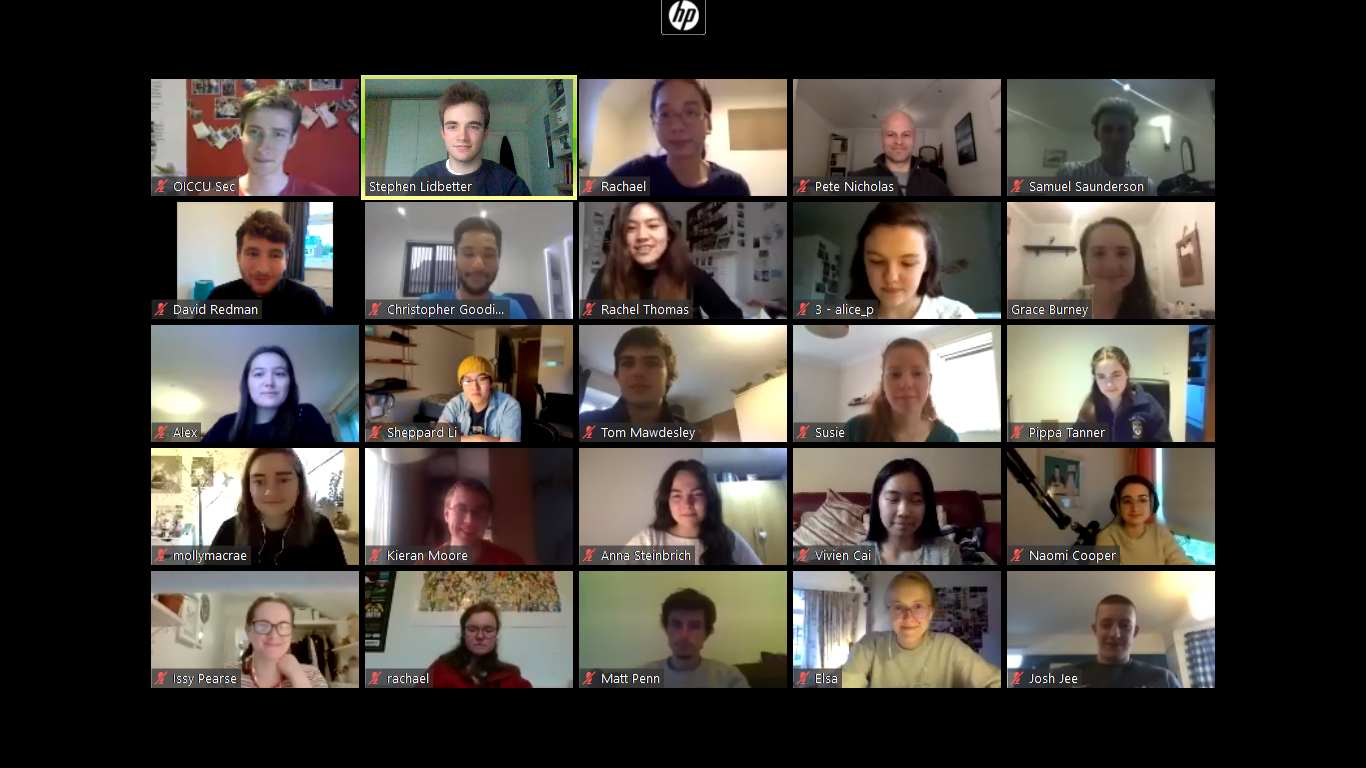
Colour-blindness is a deficiency to be acknowledged not a virtue to be celebrated
The human eye that does not recognise the individual colours of the rainbow is failing to perceive the varying wavelengths of light. Physical colour blindness is, of course, a defect of vision – an inability to differentiate and enjoy colours. The Apostle John’s great vision of the universal church in Revelation was colour-rich:
‘After this I looked, and there before me was a great multitude that no one could count, from every nation, tribe, people and language, standing before the throne and before the Lamb.' (Revelation 7:9)
This was always the direction of travel in God’s story; from creating all humans in His image – and thus conferring dignity and equality regardless of race, colour or creed – to the great promise to Abraham (an ancient nomad from Iraq), ‘I will indeed bless you and make your offspring as numerous as the stars of the sky and the sand on the seashore.' (Genesis 22:17)
A vast and diverse multitude of people across the earth who would proclaim that ‘salvation belongs to the Lord’ is the Bible’s vision of the universal church and we easily rejoice in that as a global vision. But this rich diversity is not as easily embraced locally, is it?
My friend and (until recently) close colleague, Niv Lobo, found that going on an International Summer Team each year with UCCF stirred his thinking about the gospel’s cross-cultural claims and made him evaluate his own cultural inheritance.
He reflects on his experience of being a BAME student in the UK and how the 'colour-blind' approach had had a corrosive and hollowing impact on his identity.
...For many years, I have fled from my ethnic identity. On arriving in the UK, I found a culture which made sense to me … A longing to belong here meant the culture which I had left and the culture of my parents grew distinctively less attractive. There’s vicious circularity to this: the more I resisted my “Indian”-ness, the less qualified and worthy I felt of it. Even now, the voices strike up a familiar internal chorus: you’ve never lived there, you speak none of its languages, whatever allegiance you have there is merely skin-deep. This is a push-pull dynamic … [where I was] insufficiently yoked to the culture of my heritage and inauthentic to it when trying. Fleeing ethnic identity and pursuing a colour-blindness seemed the wisest course.
[But] I was buying into the notion that identity is something I have to construct, something I have to perform. Unable to do so in a way that made sense in my situation, or that rung true for me.
The gospel is a tonic to people mid-flight. Knowing myself to be created this way by God, situated by Him in this family coming from this community – being found with this colour skin and this name – frees me from having to construct or perform. Such a construction project is beyond me – without the right blueprint, I’ll always feel like I don’t know what I’m trying to build. Such a performance would empty me entirely, like being thrust onto stage without lines, exhausted and at the mercy of what amuses or moves whoever’s in the audience. 1
A Better Vision
Niv’s experience as a BAME student was far from unique. While CUs actively recruit all interested students on campus and seek to be a society that exists for its non-members, and while many CUs work hard at welcoming international students, our CUs more often than not fail adequately to represent the diversity within the wider university. Similarly, we have clearly under-engaged BAME (especially British) students in CUs in part because our cultural lenses have led us to under-consult BAME students. This, in turn, feeds into the paucity of BAME candidates applying for both UCCF staff and our Relay internship programme. We must acknowledge these deficiencies and seek to do more to achieve a diversity that is in step with God’s vision for His gathered people.
For nearly a decade, I have conducted university events weeks each year with the world-class Jazz and Blues singer Ruth Floyd. On the first night of each events week (whether we are in Cambridge or London, York or Exeter, Nottingham or St Andrews), Ruth (who is the great, great-granddaughter of a plantation slave) takes up to an hour to tell the African-American story through song and commentary.
And I have never failed to notice what a thrill it is to black, female students in particular to see Ruth centre stage. They invariably gather around her at the end of each evening and speak appreciatively of having a black woman applying the gospel to the stain of racism and the Atlantic Slave Trade. To remain actively colour-blind in a predominantly white society is surely going to convey the attitude, ‘whatever your ethnicity – we don’t mind – just fit in’.
When I was finally persuaded to view the footage of the brutal and unlawful killing of George Floyd, like many, I shed tears of rage and sorrow that a fellow human, made in the image of God, could be slowly and deliberately killed in broad daylight on a busy street while fellow police officers stood around with their hands in their pockets. Why did this happen? Why did no one intervene? And why should black men, in particular, not believe that this is another case where black lives don’t matter?
Perfection or nothing: the bareness of the zero-sum game
The Grenfell Fire, the Windrush scandal and the disproportionate number of Covid-19 deaths recorded amongst BAME people from deprived areas was surely part of the dry tinder that was waiting to be ignited by a vicarious sense of outrage at the killing of George Floyd. While Christians cannot condone the hijacking of this protest by violence, we can and must both acknowledge and lament the deep inequalities that have undermined the social capital of our great country.
One of the worrying – if not terrifying – features of the current obsession with identity politics and intersectionality is that good-hearted and concerned citizens become too scared to speak up for fear of misspeaking or even wrong thinking. Just as white, middle-aged, cis feminists such as JK Rowling, have been denounced and 'cancelled' for speaking up for the safety and rights of biological women, Christians too should risk being attacked by these illiberal, venomous voices demanding perfection or silence and speak up for racial equality.
Harriet Beecher Stowe, the committed Christian and dedicated abolitionist, wrote Uncle Tom’s Cabin with the express intention of making America ‘feel what an accursed thing slavery is’.2 Such was the impact of the nineteenth century's best-selling novel that a story of Abraham Lincoln meeting Stowe at the start of the Civil War and saying ‘so this is the little lady who started this great war’ was (though later found to be apocryphal) widely believed.
No one would wish to defend the stereotypes of black people that subsequently emerged from her book, but it was an effective and necessary – though imperfect – protest of its time to this great evil. She followed her conscience, spoke out and achieved a massive impact on white attitudes to slavery.
We too must be courageous enough at this uneasy hour to lend our imperfect voices to call for a celebration of intentional racial diversity throughout our churches and CUs. For this is what God intends and what He will ultimately bring about on that final glorious day.
When we fail to fall in line with God’s ways we must, of course, bow our heads in penitence. I recognise that I need to repent of my long-term approval of 'colour-blindness' and even more for signalling it as a virtue to be celebrated. I have effectively colluded with a lazy and complacent counter-gospel attitude that has done real damage to the confidence and identity of my own close friends, such as Niv and Ruth, and no doubt many others.
I am genuinely sorry for this and am determined to work out before the Lord what repentance should look like.
Richard Cunningham is the Director of UCCF: The Christian Unions. Head here to read more on this topic.
References:
1https://nivedlobo.wordpress.com/2017/05/30/on-race-why-i-cant-be-colour-blind/
2Cited by Rebecca McLaughlin, Confronting Christianity, p188.











